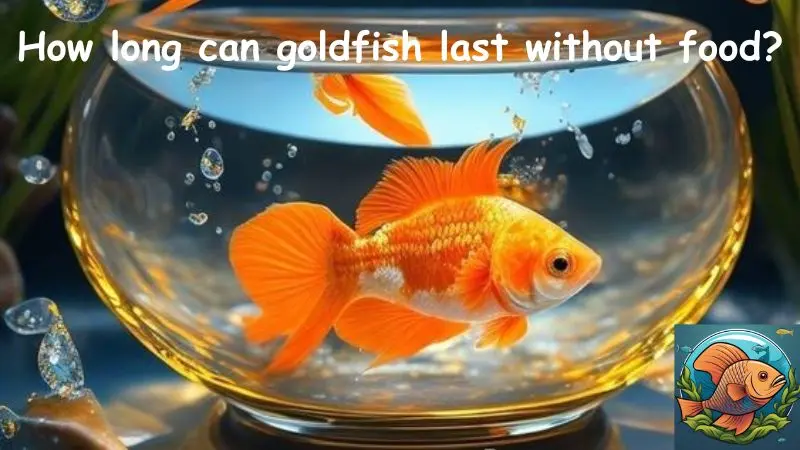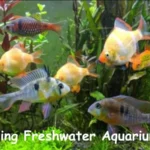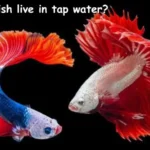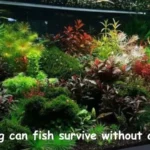fish farming
How long can goldfish last without food?
Goldfish, with their vibrant colors and graceful movements, are beloved aquatic companions. Their relatively low maintenance requirements and captivating personalities make them popular choices for both novice and experienced aquarists. However, even these resilient creatures have limits, and one question that often arises is: how long can goldfish survive without food?
This question is not merely a matter of curiosity; it has practical implications for responsible fishkeeping. Understanding the dietary needs of goldfish and the potential consequences of food deprivation is crucial for their well-being. This essay of fishtankmagic.com will delve into the intricacies of goldfish nutrition, exploring the factors that influence their survival without food and the potential risks associated with prolonged fasting.
The Importance of Food for Goldfish
Goldfish, like all living organisms, require a constant supply of nutrients to sustain their vital functions. Food provides them with the energy necessary for movement, growth, and reproduction. It also supplies essential vitamins, minerals, and proteins that contribute to their overall health and immune system.
Goldfish are primarily herbivores, with a diet consisting of algae, plant matter, and small invertebrates. In the wild, they graze on a diverse range of aquatic plants and organisms, ensuring a balanced intake of nutrients. However, in captivity, their diet is often restricted to commercially available fish flakes or pellets.
While these manufactured foods can provide a basic nutritional foundation, they may lack the diversity of natural food sources. This can lead to deficiencies in certain nutrients, particularly if the diet is not carefully formulated and supplemented.
The Impact of Food Deprivation on Goldfish
When goldfish are deprived of food, their bodies enter a state of metabolic adaptation. They begin to utilize their stored energy reserves, primarily in the form of glycogen and fat, to fuel their basic functions. This process allows them to survive for a period of time without consuming food. However, prolonged fasting can have detrimental effects on their health.
Short-Term Effects:
- Reduced Activity: As their energy reserves dwindle, goldfish become less active and sluggish. Their swimming patterns may change, and they may spend more time resting at the bottom of the tank.
- Weight Loss: The depletion of stored energy leads to weight loss, which can be particularly noticeable in young or growing goldfish.
- Impaired Immune System: Without adequate nutrition, the immune system weakens, making the fish more susceptible to infections and diseases.
Long-Term Effects:
- Starvation: If food deprivation continues for an extended period, goldfish may eventually succumb to starvation. This occurs when their body’s energy reserves are completely depleted, and they can no longer sustain their vital functions.
- Organ Damage: Prolonged fasting can lead to damage to internal organs, particularly the liver and kidneys. These organs play crucial roles in metabolism and waste removal, and their function can be compromised by nutrient deficiency.
- Behavioral Changes: Goldfish may exhibit unusual behaviors when they are hungry, such as aggressive feeding responses or attempts to eat non-food items.
How Long Can Goldfish Last Without Food? Factors Influencing Survival Time Without Food
The duration for which a goldfish can survive without food is influenced by several factors, including:
- Age and Size: Younger and smaller goldfish have a higher metabolic rate and require more energy to sustain their growth. Therefore, they are more vulnerable to food deprivation than older and larger fish.
- Water Temperature: Cold water temperatures slow down metabolic processes, allowing goldfish to survive longer without food. Conversely, warmer temperatures increase their metabolic rate, leading to faster energy depletion.
- Health Status: Healthy goldfish with strong immune systems are better equipped to withstand food deprivation than those that are already weakened or diseased.
- Water Quality: Poor water quality can further stress goldfish and accelerate the depletion of their energy reserves.
- Species: Different goldfish species may have varying tolerances to food deprivation. Some breeds, such as the common goldfish, are known for their resilience, while others may be more sensitive.
How Long Can Goldfish Really Last Without Food?
The question of how long goldfish can last without food is not a straightforward one. There is no definitive answer, as the survival time can vary widely depending on the factors mentioned above. However, some general guidelines can be provided:
- Short-Term Fasting (1-3 Days): Most healthy goldfish can tolerate a short period of fasting without significant harm. This can be helpful in situations where it is necessary to temporarily withhold food, such as during water changes or when introducing new fish to the tank.
- Medium-Term Fasting (4-7 Days): While goldfish can survive for a week without food, it is not recommended to fast them for this duration unless absolutely necessary. They may experience noticeable weight loss and a decline in their overall health.
- Long-Term Fasting (Over 7 Days): Prolonged fasting for more than a week can be detrimental to goldfish health and should be avoided. The risks of starvation, organ damage, and weakened immunity increase significantly with extended food deprivation.
Responsible Fishkeeping Practices
To ensure the well-being of your goldfish, it is essential to adopt responsible fishkeeping practices that prioritize their nutritional needs. This includes:
- Feeding Regularly: Feed your goldfish a balanced diet of high-quality fish flakes or pellets, supplemented with occasional treats such as blanched vegetables or frozen bloodworms.
- Feeding in Moderation: Avoid overfeeding, as uneaten food can pollute the water and create harmful ammonia levels. Feed only as much as your goldfish can consume within a few minutes.
- Observing Feeding Habits: Pay attention to your goldfish’s feeding habits and adjust their diet accordingly. If they are not eating regularly or seem lethargic, consult a veterinarian to rule out any underlying health issues.
- Maintaining Water Quality: Ensure that the water in your tank is clean and properly filtered. Regular water changes are crucial for removing waste products and maintaining optimal water parameters.
- Providing Enrichment: Offer your goldfish environmental enrichment, such as live plants, hiding places, and toys, to stimulate their natural behaviors and reduce stress.
Conclusion
While goldfish are resilient creatures, they cannot survive indefinitely without food. Understanding the importance of nutrition and the potential consequences of food deprivation is crucial for responsible fishkeeping. By providing a balanced diet, maintaining optimal water quality, and observing their feeding habits, you can ensure that your goldfish thrive and enjoy a long and healthy life.
Remember, goldfish are living beings with unique needs and deserve our care and attention. By following responsible fishkeeping practices, we can provide them with the optimal environment to flourish and bring joy to our lives for years to come.












